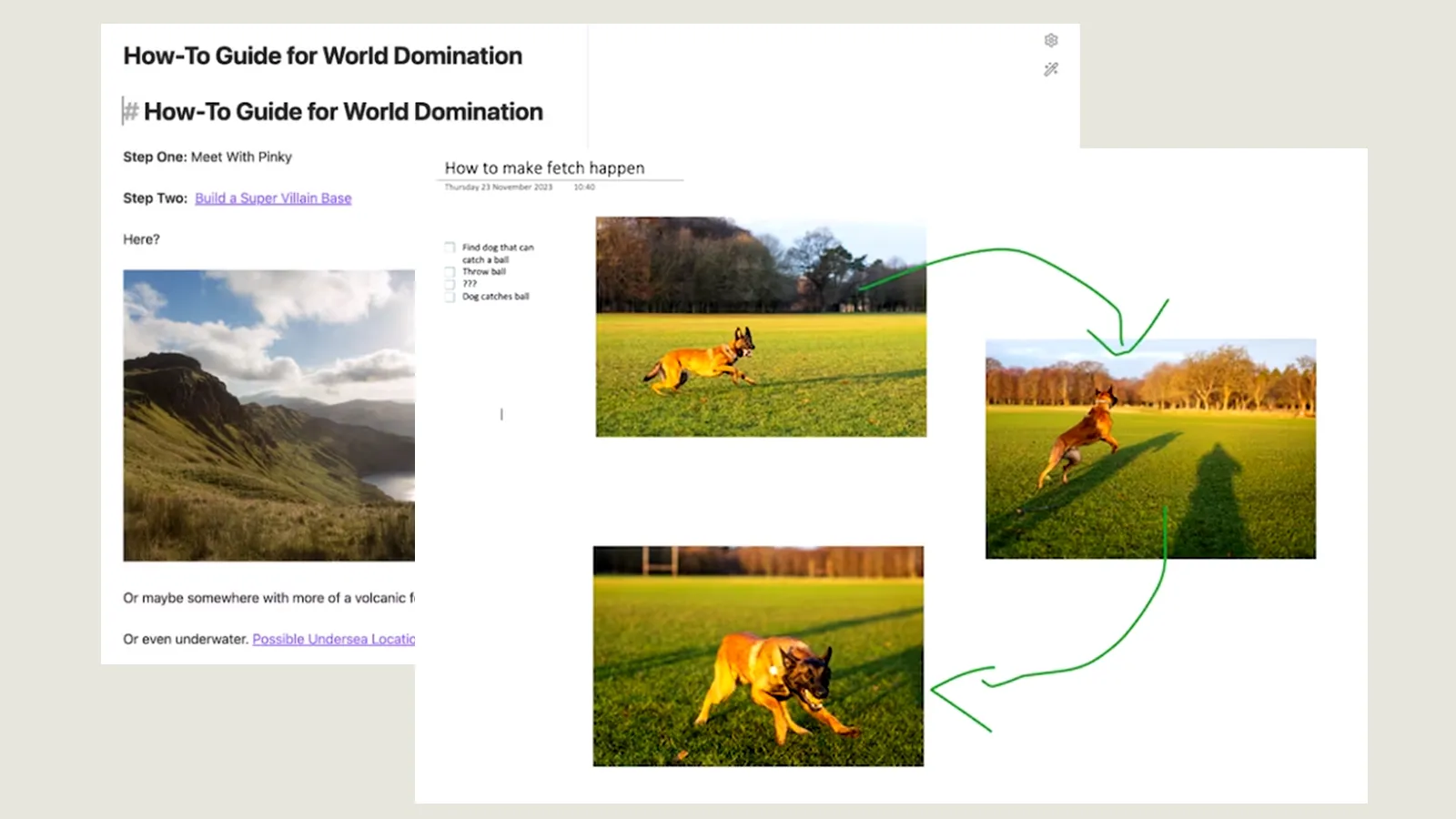May 1, 2024
The Ultimate Guide to Digital Garden in 2024
Digital garden is the practice of creating and connecting your own online knowledge base. It's like a personal wiki where you publish your thoughts, ideas, and learnings on the web, linking them together to form a network of information.
What is a Digital Garden?
Digital Garden — the act of gardening online — is an increasingly popular trend where people create online spaces to pen down their thoughts and constantly improve them. A digital garden is a personal website hybrid between a journal and a blog, and every digital garden is different, incomplete, and has its own personality.
Here are some key aspects of digital gardens:
- Think of it as a casual and evolving collection of your thoughts, ideas, and learnings rather than perfectly polished articles.
- Often linked together through hyperlinks, creating a web of interconnected ideas. This allows readers to explore related concepts non-linearly and delve deeper into your thought process.
- Digital gardens are limitless - freely explore diverse topics and interests. Over time, your content should grow and change, mirroring your growth journey.
Why a Digital Garden?
There are several reasons for and benefits of digital gardens.
- A means to cultivate your own unique space on the internet to express your ideas and interests freely without the pressure of external validation. Unlike the usual polished blogs or social media, with their emphasis on likes and shares, a digital garden is your own creative haven.
- As the internet is the mother of consciousness for the A.I. revolution, your thoughts and your garden can contribute to the data pool that shapes how A.I. learns and evolves. Just imagine that your garden, however humble, could potentially play a role in shaping the future of AI!
- The process of writing and organising your thoughts can be quite therapeutic, as it allows you to clarify your own understanding and gain a fresh perspective. This, in turn, results in an improvement in your mental health.
- The content you share in your garden, whether it's code snippets or creative projects, can showcase your expertise to potential employers. This might open up unexpected avenues and connections; we have seen people get jobs of a lifetime through their digital gardens.
- A digital garden is not a perfectly polished website but is based on the philosophy of wabi-sabi, where beauty is found in imperfections. Don't be afraid of typos or unfinished pieces; your garden is your work-in-progress, reflecting your learning journey.
- The inherent unstructured nature of a digital garden can actually foster positive writing habits. Even if it's just to capture fleeting thoughts or jot down interesting links, you feel encouraged to write regularly. Over time, this consistent exploration becomes muscle memory and helps you develop a regular writing practice.
Digital Garden Examples
There isn't a "must follow" design in digital gardens, everyone's garden should (and will) look different. Here are some examples of digital gardens owned by people on the internet:
Explore more about each digital garden.
The Digital Garden Ethos
The digital garden ethos is a philosophy behind creating a personal online space that thrives on exploration, openness, and growth (like an actual garden). Just remember these 4 tenets of the digital garden ethos:
- Digital gardens are about capturing your "work in progress" where thoughts act like "seeds" and take root and grow. So, embrace imperfections and share any half-baked thoughts you might have. The exploration process might just be more valuable than the final product!
- Let your curiosity run wild - Explore various ideas and tangents, and experiment with different media formats. Let your interests guide your content.
- Hyperlinks are the essence of a digital garden. Create a web of knowledge that connects ideas, allowing readers to gain a deeper understanding of your thought process.
- Focus on the intrinsic value of intellectual growth. Instead of seeking external validation such as subscription counts and social media engagement, focus on the creative journey.
How to set up your own Digital Garden?
The question of "How to start a digital garden?", can be answered in 3 summarised steps: Choose your tools, Develop a content structure, and Consistent growth strategies.
1. Choose your tools
You don't need a degree in Computer Science to grow your digital garden. In this day and age, there are options for everyone - but the best tools for digital gardens will depend on your expertise.
Starting with the "digital garden for beginners" options - Platforms like Konigle have a linking feature and a quick way to publish your thoughts, enabling you to grow a digital garden with zero coding knowledge.
If you prefer greater control over the design and functionality of your digital garden, Static Site Generators (SSGs) like Jekyll, Hugo, or Eleventy are the perfect fit for you. However, be prepared for a slight learning curve.
2. Develop a content structure
Regardless of the platform, content makes up the core of your digital garden. Create interesting and informative content that reflects your learning journey, adding tags to each post. Then put yourself in your reader's shoes and link your ideas together in a way that helps them better navigate your garden and foster a sense of discovery.
3. Strategies for consistent growth
Everybody has to start somewhere so don't expect a vast garden to flourish overnight (that will not happen in an actual garden either). Start small, with a few articles you're passionate about.
Also, factor in some time for daily scheduled writing times. This way, you can incorporate daily learning and ensure you do not fall behind on growing and pruning your digital garden.
Lastly, if you find it hard to get started, 'website building support groups' are always readily available with a search on the internet. For example, the Website Café.
How Digital Garden has helped us learn and grow?
The value of a digital garden lies in empowering everyone to learn and grow, by sharing knowledge with the world. How satisfying will it feel when you find out that your insights have helped someone get a better grasp of a certain concept?
Additionally, when you share in a 'knowledge pool' it can lead to breakthroughs and innovations. Putting it in gardening terms, contributing your insights on the web is like adding fertiliser to the garden.
Last but certainly not least, sharing and explaining a concept forces you to re-internalize your understanding. This is also known as the 'Protege effect' - through teaching, you can solidify your learning and discover knowledge gaps that can be further explored and filled.
Conclusion
Remember, there's no right or wrong way to grow your digital garden. So, choose a method that suits your comfort level, and most importantly, have fun sowing the seeds in your unique space for exploration and lifelong learning!


